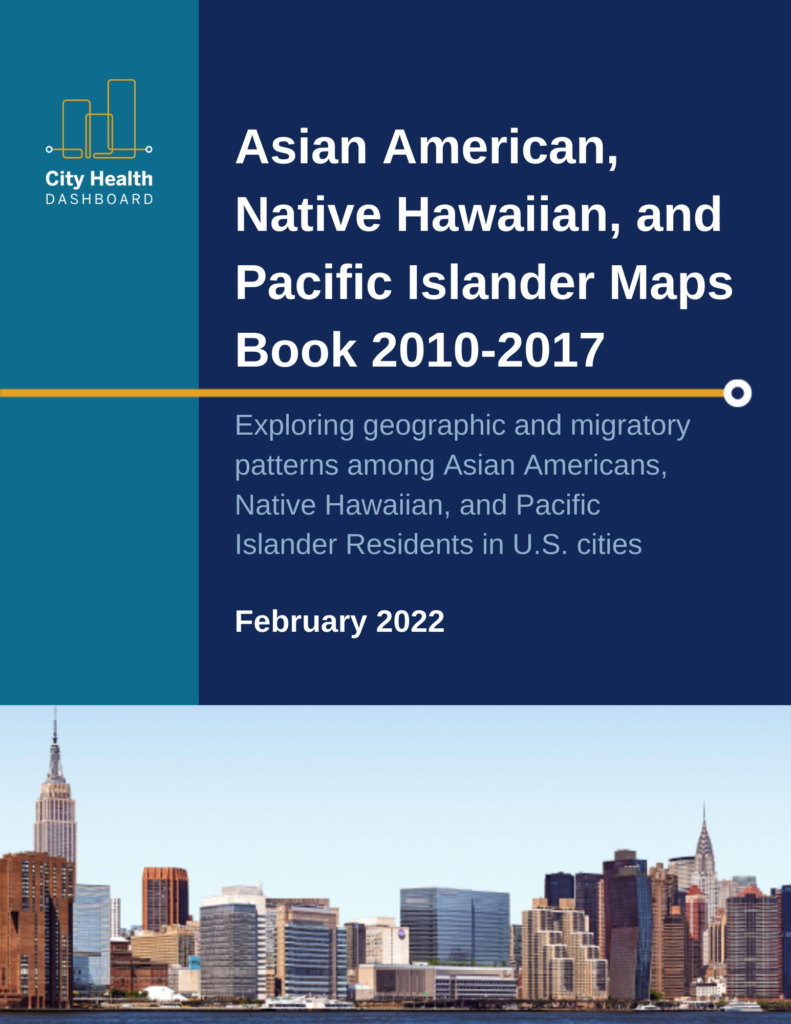Maps Book
Maps Book is a visual resource that describes cities where Asian American, Native Hawaiian, and Pacific Islander populations (NH/PI) lived in 2017. The aim of this tool is to show how the distribution of Asian American and NH/PI populations changed from 2010 to 2017, and to provide neighborhood-level maps to show where Asian American and NH/PI subgroups live within these cities. The Maps Book is the product of a collaboration between the NYU Center for the Study of Asian American Health (CSAAH) and City Health Dashboard.
The Dashboard team provided their understanding of publicly available demographic data (using the U.S. Census American Community Survey project) and cartographic expertise. CSAAH contributed our unique knowledge and experience derived from longstanding partnerships with Asian American and NH/PI-serving organizations, stakeholders, and institutions, to provide feedback on the map features and tables in this data resource.
CSAAH also helped coordinate and gather critical feedback to adapt this resource from our National Advisory Committee on Research (NAC), a formal advisory group comprised of 14 Asian American, Native Hawaiian, and Pacific Islander community leaders and champions representing community-based organizations (CBOs), social service and advocacy agencies, federally-qualified health centers (FQHCs), health care professional organizations, and academic representatives with a long history of implementing successful strategies to promote the health and well-being of diverse Asian American and NH/PI communities, to inform the detail and content included in this Maps Book.
Our hope is that the Maps Book resource, in providing a type of granular demographic information, may help our partners with their research, advocacy, and policy endeavors. Secondly, this Maps Book is intended to add to, and further, ongoing conversations around the need for increased funding and research to interrogate Asian American and NH/PI health and health disparities, growing U.S. Asian American and NH/PI populations, and importance of investing in sustained and comprehensive community-engaged research focused on these communities.
Click to open and view the Maps Book HERE.

